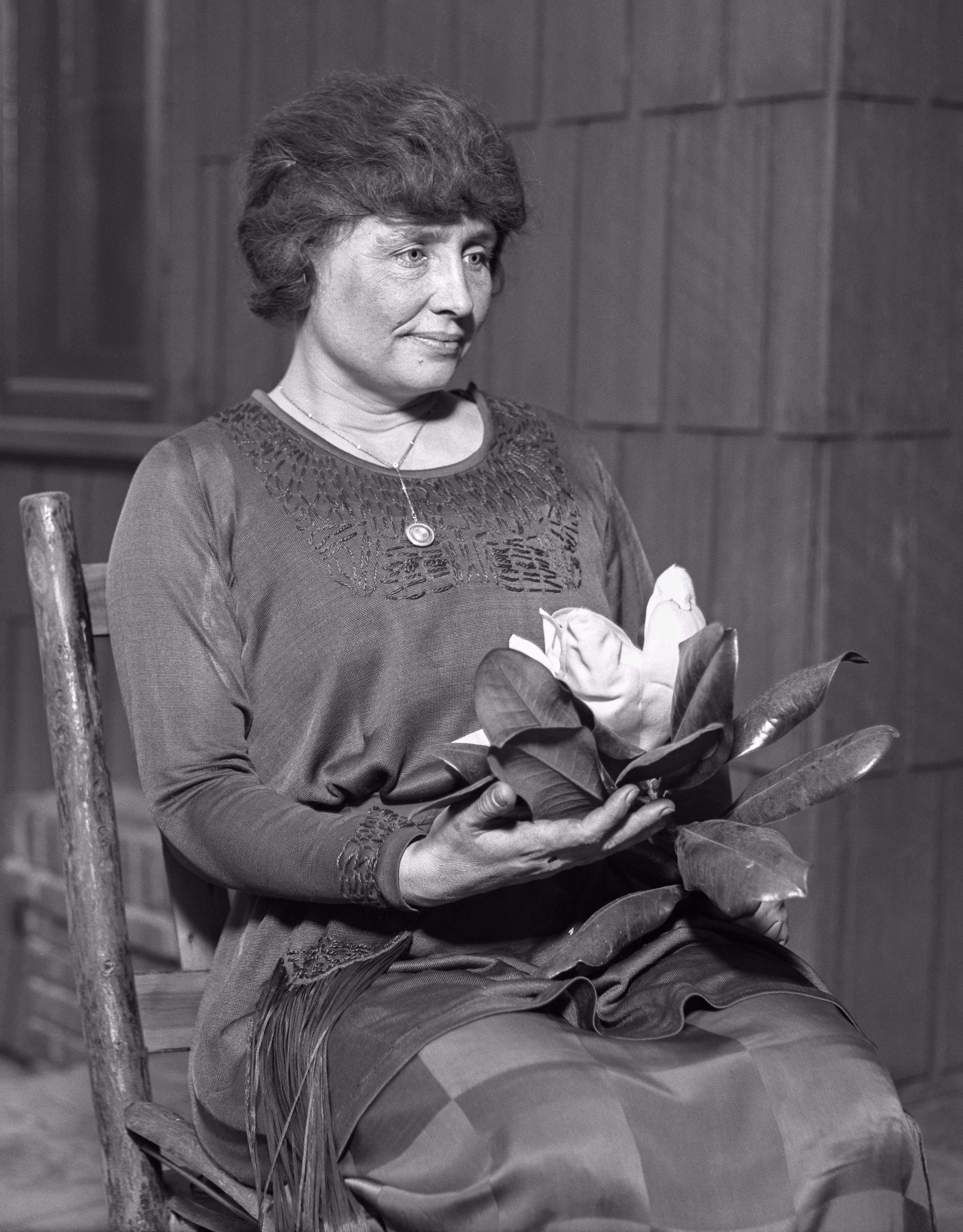“The bulk of the world’s knowledge is an imaginary construction.”
The Five-sensed World (1910)
Helen Adams Keller was an American author, political activist, and lecturer. She was the first deaf-blind person to earn a bachelor of arts degree. The story of how Keller's teacher, Anne Sullivan, broke through the isolation imposed by a near complete lack of language, allowing the girl to blossom as she learned to communicate, has become widely known through the dramatic depictions of the play and film The Miracle Worker. Her birthplace in West Tuscumbia, Alabama, is now a museum and sponsors an annual "Helen Keller Day". Her birthday on June 27 is commemorated as Helen Keller Day in the U.S. state of Pennsylvania and was authorized at the federal level by presidential proclamation by President Jimmy Carter in 1980, the 100th anniversary of her birth.
A prolific author, Keller was well-traveled and outspoken in her convictions. A member of the Socialist Party of America and the Industrial Workers of the World, she campaigned for women's suffrage, labor rights, socialism, antimilitarism, and other similar causes. She was inducted into the Alabama Women's Hall of Fame in 1971 and was one of twelve inaugural inductees to the Alabama Writers Hall of Fame on June 8, 2015. Keller proved to the world that deaf people could all learn to communicate and that they could survive in the hearing world. She also taught that deaf people are capable of doing things that hearing people can do. One of the most famous deaf people in history, she is an idol to many deaf people in the world.

“The bulk of the world’s knowledge is an imaginary construction.”
The Five-sensed World (1910)
was the wordless cry of my soul, and the light of love shone on me in that very hour.
Source: The Story of My Life (1903), Ch. 4
The Simplest Way to be Happy (1933)
Optimism (1903)
Three Days to See (1933)
Optimism (1903)
Source: The Story of My Life (1903), Ch. 21
Optimism (1903)
“Happiness is the final and perfect fruit of obedience to the laws of life.”
The Simplest Way to be Happy (1933)
Optimism (1903)
Source: The Story of My Life (1903), Ch. 21
What is the IWW? (1918)
Source: [What is the IWW?, Helen, Keller, https://www.marxists.org/reference/archive/keller-helen/works/1910s/18_01_x01.htm, 1918, January, December 27 2016]
Optimism (1903)
“It all comes to this: the simplest way to be happy is to do good.”
The Simplest Way to be Happy (1933)
Physicians, The New Republic December, 18, 1915. http://www.uffl.org/vol16/gerdtz06.pdf
Optimism (1903)
Out of the Dark (1913), To a Woman-Suffragist
“Tyranny cannot defeat the power of ideas.”
As quoted in the Fighting the Fires of Hate: America and the Nazi Book Burnings exhibit at the United States Holocaust Memorial Museum (13 April 2003) http://www.ushmm.org/museum/press/archives/detail.php?category=10-publicprograms&content=2003-04-13
Three Days to See (1933)
Optimism (1903)
What is the IWW? (1918)
Source: The Story of My Life (1903), Ch. 21
Midstream (1929)
My Religion / Light in My Darkness, Ch 6 (1927)
men study the human soul with sympathy, and there enters into their hearts a new reverence for that which is unseen.
Optimism (1903)
But a little word from the fingers of another fell into my hand that clutched at emptiness, and my heart leaped to the rapture of living. Night fled before the day of thought, and love and joy and hope came up in a passion of obedience to knowledge. Can anyone who has escaped such captivity, who has felt the thrill and glory of freedom, be a pessimist?
Optimism (1903)
If I regarded my life from the point of view of the pessimist, I should be undone. I should seek in vain for the light that does not visit my eyes and the music that does not ring in my ears. I should beg night and day and never be satisfied. I should sit apart in awful solitude, a prey to fear and despair. But since I consider it a duty to myself and to others to be happy, I escape a misery worse than any physical deprivation.
Optimism (1903)